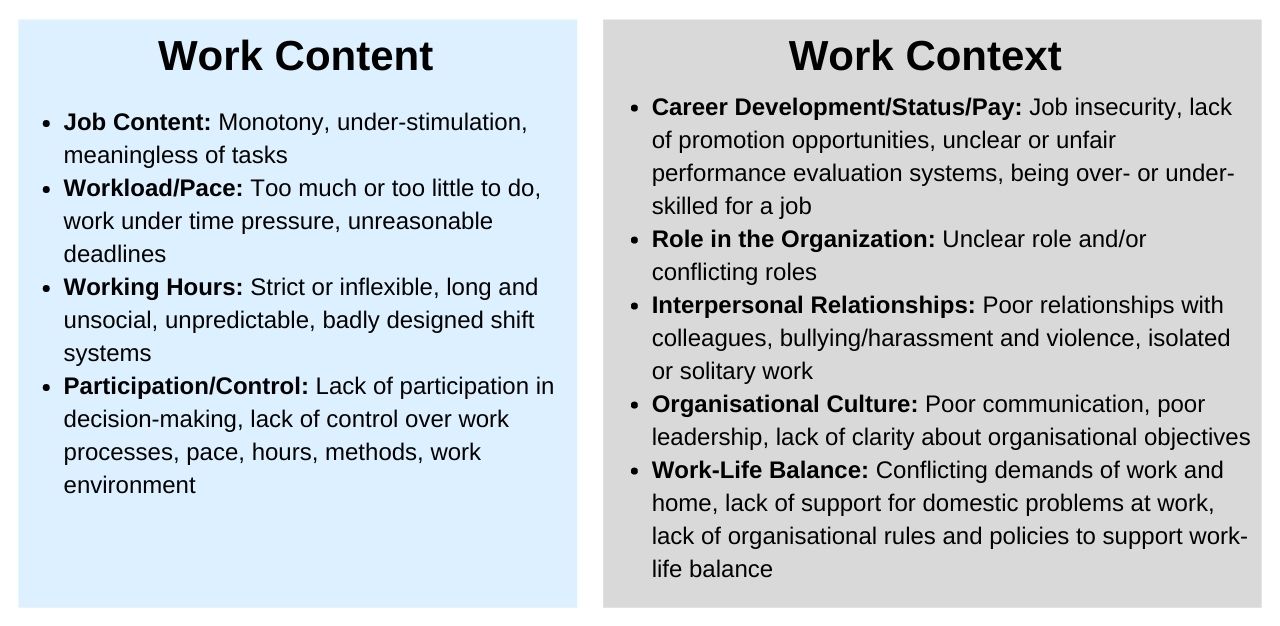Employees are not the only ones struggling with the changes in their working environment due to the pandemic. Employers are suffering too.
A survey conducted by digital mental wellness platform Safe Space™, in collaboration with the Action Community for Entrepreneurship, on the mental health of startup founders during Covid-19 reveals the stresses that the pandemic has placed on business owners, in the past year.
Surveying over 150 founders across Singapore from November 2020 to May 2021, it discovered that 58 per cent of respondents felt the demands of everyday life often gets them down, 75 per cent reported being touchy and easily irritated, and 70 per cent found maintaining close relationships difficult and frustrating.
Of these founders, 62 per cent say that one of the main stressors during this pandemic was the challenging business environment, and 46 per cent are concerned about company cash flow.
The burden of leaders
Porsche Poh, Executive Director of mental health advocacy nonprofit Silver Ribbon Singapore, highlights that while employers play a pivotal role in maintaining the well-being of their teams, their own mental wellness is also a priority.
“[The conversation has always been that] employers should do more,” she says. “But how can they do more while they are struggling with their business themselves? The mental well-being of the employer is also very important.”

Antoinette Patterson, the CEO of Safe Space™, says, “investors and other stakeholders who are invested in the success of these companies need to ensure that the [business owner’s] mental health is prioritised… It can make all the difference to the long-term growth of a business, and [employers’] own mental wellness.”
In her work, she finds that the top stressors among startup founders during the pandemic were the “challenging business environment, company cash flow issues, team dynamics, and long working hours.”
John Shepherd Lim, founder and Chief Wellbeing Officer at Singapore Counselling Centre (SCC), observes that many businesses have been impacted over the pandemic due to reduced demand, especially for businesses in the food and beverage and hospitality sectors, while others have been affected by heightened control measures, which have had an impact on their manpower.
He adds: “On top of that, the costs remain mostly the same, and the revenue has been reduced, and it is also a struggle to redesign job functions during such time… There’s a lot of worry and concern about the future, many are just struggling to pay their bills.”
In addressing the mental well-being of employers, Ms Poh advises: “It’s good for them to look out for warning signs and to be ready to seek help.”
“We do have… high profile [individuals] who are less likely to come forward because they are worried that people will judge them,” she continues. “But regardless of whatever ranking you have or how much you’re earning, [mental health concerns] could happen to anyone, so it’s okay for you to come forward and seek help.”

A business leader and mental health advocate Priyanka Bajpai, who is also the Regional Head of public relations firm SPAG, lives by this quote when it comes to enhancing her own mental well-being: “The degree to which we embed and prioritise our own mental health for ourselves, is the degree to which mental health will improve.”
As part of her philosophy, she continually invests in protecting her mental health, including surrounding herself with a team of reliable advisors in her workplace, while keeping a strong support system outside of work.
She also consults a life coach who helps her maintain a more relaxed mindset and tackle the challenges of leadership, as well as sets aside time to unwind and have a life outside of work.
“With more conscious effort, one can mitigate mental health issues at the early stages,” she says.
The need to take action, and the barriers against it
While business leaders and employers have started to pay more attention to their well-being, they are also recognising the equal importance of taking care of their employees’ mental health.
In March this year, human resources software firm Employment Hero conducted a survey on how Covid-19 has impacted the mental health of employees and employers. Of the 1,014 individuals surveyed (529 consisted of employees), 71 per cent of the employees reported feeling stressed about the pandemic in the six months prior, and 52 per cent said that they worried about their mental health.
Anxiety is a common concern raised in counselling sessions, notes Ms Poh. Employees, she explains, are struggling to maintain productivity, while juggling caregiving responsibilities for elderly parents and/or children at home, which have led to increased stress levels.
To better understand the impact of mental health issues in the workplace, family medicine physician Dr Shariff Rizwan explains that stressors can be broadly divided into work content and context.

These stressors can have an impact on the health of both employees’ and the organisation in the long-run, warns Dr Rizwan.
He elaborates: “Any form of stressor is likely to contribute to workplace fatigue or burnout. Oftentimes, workers don’t seek help or solutions despite being at the stage of burnout, leading to a vicious cycle as they continue to work in such environments while already burnt out.”
On a personal level, burnout can manifest itself in various forms such as “prolonged fatigue, sleep issues, poor sexual performance, or other anxiety or depression-related symptoms”, according to Dr Rizwan.
In the workplace, he says: “Performance will turn towards a downward spiral – both for the employees and the organisation at-large. Most times, it would lead to poor work output; resignations and retrenchments may then follow. In many companies, these resignations are often followed by a domino effect – further worsening the performance of a company.”
Since the start of the pandemic, Mr Lim reveals that SCC has received a whopping 150 per cent jump in enquiries from employers regarding mental wellness talks and Employee Assistance Programmes (EAPs).
EAPs provide assistance to employees for work-related and personal problems that may have an adverse impact on their job performance and emotional well-being. They comprise counselling sessions, talks, and workshops on mental health and well-being.
But despite employers realising the importance of employees’ mental well-being, some barriers are preventing them from implementing concrete measures.
Difficulties in safeguarding the mental well-being of employees
A lack of mental health literacy is one such factor, as highlighted by both Ms Poh and Mr Lim. This is also reflected in Employment Hero’s survey, where nearly half of employers said that they did not know how to support their employees’ mental health.
Another obstacle hindering better provision of mental health resources is the lack of manpower or funding in some companies.
In such cases, businesses might be hard-pressed to accommodate employees who are struggling. Compounding this are periods when a workplace is exceptionally busy, says Mr Lim. During such times, the mental health of employees are more likely to suffer, but they are also unable to take time off because workload is piling up and deadlines have to be met.

Furthermore, human resources departments in some firms may find it difficult to raise budgets for mental health services if mental well-being is not seen by management as a priority.
Mr Lim says: “Realistically speaking, the strategic awareness of mental health is still a growing area in Singapore… there are many who view mental health not as an illness that can be treated, but as a fundamental character or mental weakness.”
This can, in turn, result in a lack of openness in addressing mental health issues in the workplace, making it difficult for employers to gauge the true state of their employees’ mental health, he adds.
Stigma towards mental illness is also a pressing issue, which can cause discrimination in the workplace.
Based on Employment Hero’s survey, over 60 per cent of employers and employees see mental health stigma in the workplace as a worry.
“Employees might be unsure of how their employers will respond when they disclose their struggle with mental health,” explains Mr Lim. “They worry about whether it would affect their promotion opportunities or reputations, so many decide to keep these struggles to themselves.”
A holistic network of organisational and supervisorial support
Recognising the stressors faced by employees’ during the pandemic and the barriers to seeking help, an inter-agency advisory was issued jointly in April last year, by the Ministry of Manpower, Ministry of Social and Family Development, Agency of Integrated Care, Institute of Mental Health, and National Council of Social Services, to address the mental well-being of workers in Singapore due to Covid-19 work arrangements.
They recommended that employers regularly check in with staff, provide flexible work schedules where possible, and allow employees access to external counselling services through the EAP.
Workshops and talks provided under the EAP are especially important as a first step, says Ms Poh, as they provide a basic foundation and knowhow about mental health in the workplace.
“Thereafter, [employers] will know better how to approach their staff in a more appropriate way to provide support,” she explains.
Companies can also take steps to ensure that employees have conducive working environments at home.
For instance, Silver Ribbon provides staff with a work mobile phone to protect their privacy. It will also arrange for a work desk to be delivered to employees if they do not have one at home, as well as ensure that their IT equipment is up-to-date.
To support the mental well-being of their staff, Silver Ribbon has increased team meetings from monthly to weekly, providing an avenue for them to check in and share their concerns. Ms Poh says that these meetings have also served as a means for team bonding, as staff catch up and stay in touch with each other while working remotely.

In SPAG, measures have likewise been introduced to protect the well-being of employees. Ms Bajpai shares that they have frequent employee town halls to ensure two-way communication on what the firm is doing during the pandemic, while also garnering feedback on what they can do better.
She also emphasises the importance of regular reviews with staff who work remotely, as well as constant encouragement and recognition to boost the team’s morale. Adhoc events, such as live jamming sessions and mocktail nights, have also encouraged staff to “unwind a little, and laugh as a family.”
Even in smaller companies with limited resources and manpower, Ms Poh urges: “How about just listening to them [the staff]? And providing an explanation [when you are unable to make concessions].”
She adds: “Have some discussion. Develop the solution together with the staff. [Ask them] how can we do better to support you?… It’s about working things out together, not just waiving the issue, and then to support them at their capacity.”
Finally, a preventive approach is oftentimes better than a reactive one, emphasises Ms Poh.
“Everyone is talking about wearing masks or sanitising your hands, but what about mental health issues?,” she asks. “We should start talking about that as well. It’s about developing a programme, a contingency plan, before anything happens. We don’t build the wall after the tsunami.”
To promote good mental health in the workplace, the onus is on all
Beyond organisational and supervisorial support in the workplace, mental health experts highlight the importance of self-care.
Mr Lim says: “We need to practise a high standard of mental hygiene through the process of mindfulness.”
He advises individuals to be quick to identify negative thoughts, and displace them with a better tone. And suggests engaging in activities outside of work, such as exercise and caring for one’s physical well-being by sleeping and eating well.

Likewise, Dr Rizwan recommends learning how to understand stress triggers, and to identify healthy responses when stressed. He also advocates establishing clear boundaries between work and home, and to “switch off” from time to time.
For individuals who are still struggling and require assistance, resources are available.
Reach out to these helplines and counselling services:
- Fei Yue’s Online Counselling Service
- Institute of Mental Health’s Mental Health Helpline (6389-2222)
- Samaritans of Singapore (1800-221-4444)
- Silver Ribbon Singapore (6385 3714)
- Safe Space
- Care Corner Counselling (1800 353 5800)
Employers looking to implement the Employee Assistance Programme at their workplace can find the list of providers here.
Other counselling services are also available here.
Join the conversations on TheHomeGround Asia’s Facebook and Instagram, and get the latest updates via Telegram.












